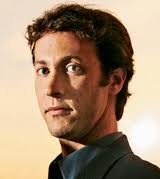How to Avoid Choking under Pressure (BSP 76)
/Sian Beilock, PhD
In her book, Choke: What the Secrets of the Brain Reveal About Getting It Right When You Have To, University of Chicago psychologist, Sian Beilock, explores the dreaded phenomena of choking (i.e. the failure to perform as expected under pressure). More importantly, she provides practical suggestions for preventing poor performance.
In the latest episode of the Brain Science Podcast (BSP 76) I talk with her about the different types of choking; it turns out that the failure mechanisms between blowing the big test and missing the key shot in sports are significantly different. Understanding both how they differ and what they have in common is the key to better performance.
How to get this episode:
Premium Subscribers now have unlimited access to all old episodes and transcripts.
New episodes of the Brain Science Podcast are always FREE. All episodes posted after January 1, 2013, are free. See the individual show notes for links the audio files.
Links:
Human Performance Laboratory (University of Chicago).
Dr. Beilock's blog for Psychology Today.
References:
Choke: What the Secrets of the Brain Reveal About Getting It Right When You Have To, by Sian Beilock.
The Overflowing Brain: Information Overload and the Limits of Working Memory, by Torkel Klingberg.
Houben, K., Wiers, R. W., & Jansen, A. (2011). Getting a Grip on Drinking Behavior : Training Working Memory to Reduce Alcohol Abuse. Psychological Science. (Dr. Beilock's review for Psychology Today).
Writing About Testing Worries Boosts Exam Performance in the Classroom Gerardo Ramirez and Sian L. Beilock Science 14 January 2011: 211-213. (Beilock's interview with Science podcast).
C. Liston, B. S. MeEwen, and B. J. Casey, "Psychological stress reversibley disrupts prefrontal processing and attentional control." Proceedings of the National Academy of Sciences, USA, 106 (2009), 912-917. (abstract)
A. Lutz, H. A. Slagter, J. D. Dunne, and R. J. Davidsons, " Attention regulation and monitoring in meditation," Trends in Cognitive Science, 12 (2008), 163-169.
Announcements:
Be sure to check out Triangulation 19 with Dr. Miguel Nicolelis, author of Beyond Boundaries: The New Neuroscience of Connecting Brains with Machines---and How It Will Change Our Lives.
Brain Science Podcast app is now compatible with the iPad, making it great for reading episode transcripts. It is also available for Android devices. (35% of the price goes to support the Brain Science Podcast)
Next month's episode of the Brain Science Podcast will be about Placebos and the Brain.
While the Brain Science Podcast is sponsored by Audible.com, it depends on listener donations.
Post feedback about this episode in our new Discussion Forum at Goodreads.com or on the Brain Science Podcast Fan Page on Facebook.
Subscribe to the Brain Science Podcast Newsletter to get detailed show notes for each episode via email.
Please send feedback to Dr. Campbell at brainsciencepodcast@gmail.com.






















